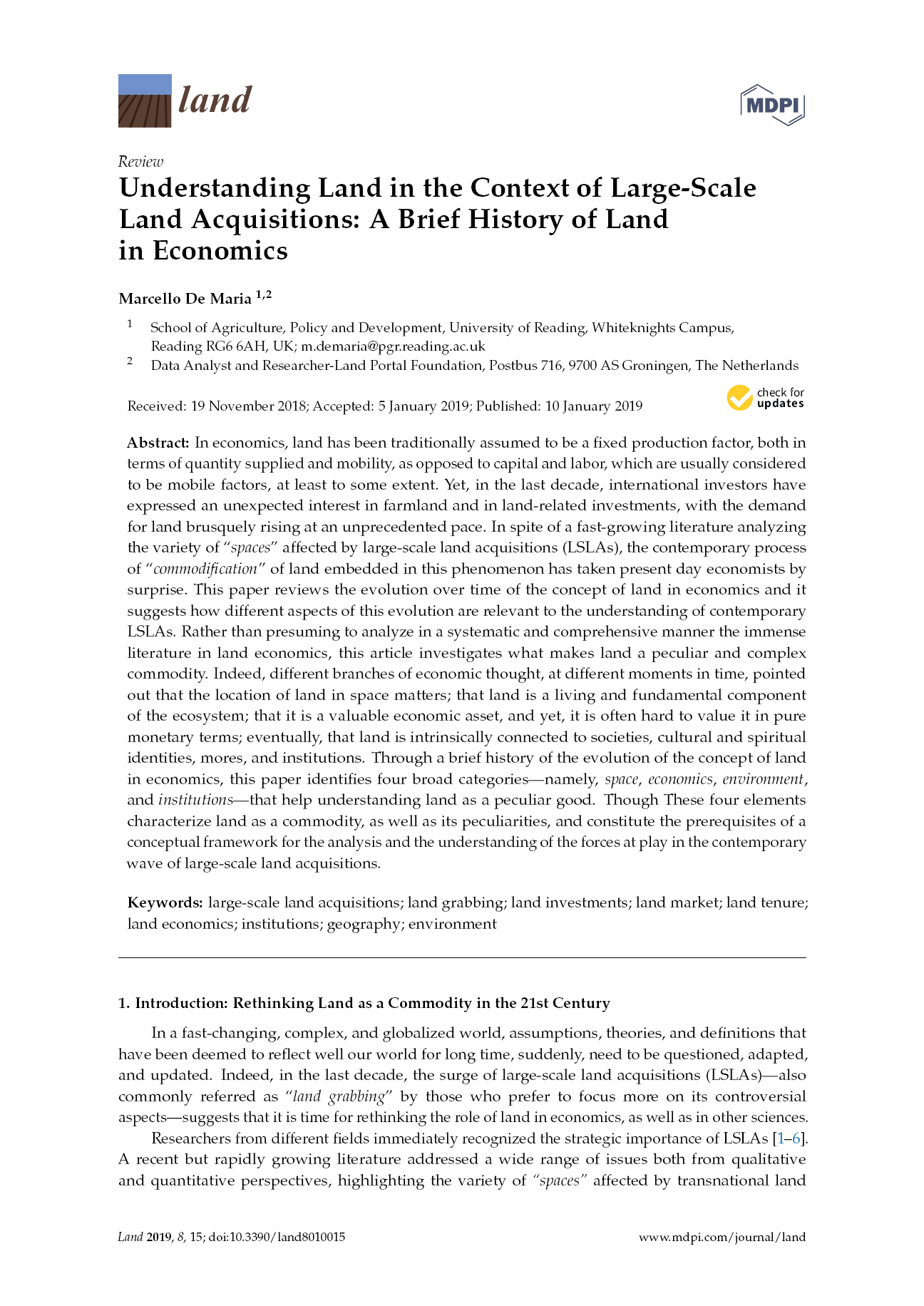Land Grabbing and Human Rights: The Role of EU Actors Abroad
Contains framing human rights in the global land rush; the impact of land grabbing on human rights; EU actors’ involvement in land grabbing; understanding investment webs; 5 mechanisms linking the EU to land grabs; the extraterritorial obligations of the EU and its member states; the EU’s response to land grabbing; conclusions and recommendations.



